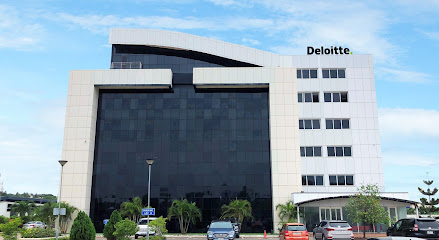Deloitte Ghana has presented a series of strategic recommendations to the government aimed at expanding the country’s tax base and enhancing revenue collection, as outlined in its analysis of the 2024 Mid-Year Budget.
Central to Deloitte’s proposals is a focus on improving the ease of doing business at Ghana’s ports, coupled with a significant enhancement in taxpayer education. The firm advocates for regular updates to the Ghana Revenue Authority’s (GRA) online platforms to better address taxpayer concerns, thereby encouraging greater compliance.
A critical aspect of Deloitte’s strategy is the continuous clean-up of the national tax register. The firm underscores the importance of expanding the use of electronic systems to encompass a broader taxpayer base, which is anticipated to significantly enhance the taxpayer experience and streamline the collection process.
In terms of environmental taxation, Deloitte has urged the government to develop comprehensive guidelines for the implementation of the Emissions Levy and environmental excise duty on plastics. The firm also recommends bolstering data-sharing mechanisms with other jurisdictions to improve revenue mobilisation.
Deloitte further advocates for the introduction of a simplified digital solution and electronic bookkeeping system, which is expected to facilitate the operationalisation of the modified taxation regime within the informal sector. The firm has set an ambitious target of integrating an additional 2,000 taxpayers into the electronic Value Added Tax (VAT) invoicing system by the end of 2024.
On the matter of tax incentives, Deloitte calls for the swift completion of regulations for the Exemptions Act, 2022 (Act 1083). The firm also recommends amendments to the VAT regulations (L.I. 2255) to broaden the scope of exemptions for active pharmaceutical ingredients, excipients, and other finished pharmaceutical products.
Additionally, Deloitte emphasizes the need for a comprehensive review of existing tax laws to align them with contemporary economic realities, as well as the finalization of draft regulations to operationalise the Independent Tax Appeals Board (ITAB).
In terms of revenue mobilisation, Deloitte proposes the development of a framework to reintroduce road and bridge tolls through a modernised tolling system by the close of 2024. The firm also calls for the reinstitution of the integrated property tax system to ensure the efficient assessment and collection of property taxes.
Moreover, Deloitte stresses the importance of developing legislation and a strategic framework for the mobilisation and management of non-tax revenue.
These recommendations reflect Deloitte Ghana’s commitment to supporting the government in broadening the tax base, enhancing efficiency in tax administration, and aligning the country’s tax framework with the demands of a modern economy.
Source:norvanreports.com

